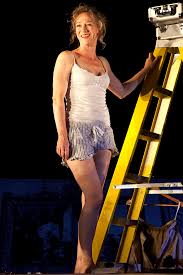
The 101 Greatest Plays: From Antiquity to the Present by Michael Billington
In his recent review of Harry Potter and the Cursed Child  Michael Billington writes that he now sees “the point of being wild about Harry”. But for me the excitement about Harry has been seeing children reading the play. Because reading plays is not a common activity and it should be.
Michael Billington writes that he now sees “the point of being wild about Harry”. But for me the excitement about Harry has been seeing children reading the play. Because reading plays is not a common activity and it should be.
Billington has been a theatre critic for almost 50 years, seeing around 9,000 plays and reading many more. His choice, he insists, is “subjective” stating, “a great play is both an expression of its time and open to multiple reinterpretations”.
It is impossible to resist scanning the chronological list of playwrights and plays searching for favourites. As Billington admits, “a woman critic or one from a black or Asian background would arrive at a wholly different list” and so would an Irish critic.
Nine Irish playwrights and a total of ten plays make the cut. Farquhar, Goldsmith, Sheridan, Shaw (twice), Joyce, O’Casey, Beckett, Friel and McPherson. But where are Boucicault, Synge, Behan, Keane, Murphy, McGuinness, Carr, Barry, and Walsh? Another nine off the top of my head, and I haven’t even started on those born elsewhere such as McDonagh.
Billington apologises to writers, “whom I profoundly admire but who don’t appear” and hopes that those living “will forgive me”. No two lists could be identical and for me, Billington’s choice is sound. I have read or seen most of the plays and the remainder are on my reading list.
Certainly his first choice The Persians by Aeschylus, fits Billington’s criteria of being ”still vibrant” in that recent productions colour the play “with our own sense of the horror of war”.
Billington usually mentions performances that he has seen, particularly, in this case, “Mike Pearson’s National Theatre of Wales production staged in and around a hilltop military village built by the British army to train troops in hand-to-hand fighting”.

The first Irish play to get a mention is one of my all time top ten, George Farquhar’s The Recruiting Officer. Billington admires the comedy for its “nose for corruption and eye for injustice”.
Secondly he includes another comedy She Stoops to Conquer by Oliver Goldsmith. Billington sees “psychological acuity under the mathematical ingenuity”.

On the first night in 1773 a critic described the play as “a barrel of gunpowder”. I’m so sad that I missed Jamie Lloyd’s 2012 revival in which “Marlow pawed the ground like an impatient stallion while … Kate archly reared her rump in readiness for goodness knows what”.
In his essay on Sheridan’s The School for Scandal Billington regrets a production which I did see (image below), and hated.
 Deborah Warner updated the play in 2012 to “celebrity culture”. He says this mistake teaches us “that a play may simultaneously be topical and timeless”.
Deborah Warner updated the play in 2012 to “celebrity culture”. He says this mistake teaches us “that a play may simultaneously be topical and timeless”.
It is not surprising that Irish dramas chosen for The 101 Greatest Plays get an enthusiastic response. What is surprising, though, is Billington on Beckett. Writing in dialogue, as in many pieces towards the end, Michael talks to ‘Helen’, a young woman critic – an amalgam of several people.
“You must be torn between Waiting for Godot, Endgame and Happy Days” says Helen and the reply is, “I’ve chosen none of those.” Billington is “not temperamentally drawn to his [Beckett’s] vision of life as an irremediable hell”.
Instead Billington chose All That Fall, a radio play, because of its “vivid particularity” rather than “exemplary archetypes”. Helen accuses Michael of a “dated penchant for observant realism” but he insists that the play contains “all the great Beckett themes given flesh and colour”.
Billington concurs with Helen’s assessment of his preference for realism mentioning “McPherson’s Chekhovian gift for the minute particular” in his piece on The Weir. He admires McPherson’s “intuitive understanding of wasted lives” calling the play a “mesmerising study”. These two words equally apply to Billington’s book which is dedicated to playwrights, defending them against the threat of company-devised work.

Works Cited
Aeschylus. The Persians. written 472 BC.
Beckett, S. All That Fall. Faber & Faber. 2006.
Billington, Michael. The 101 Greatest Plays. Faber & Faber. 2016
Farquhar, G. The Recruiting Officer. Lintot. 1706-7.
Goldsmith, O. She Stoops to Conquer. F. Newberry. 1773.
McPherson, C. The Weir. Dramatists Play Service Incorporated. 1998.
Rowling, J.K., Thorne, J. and Tiffany, J. Harry Potter and the Cursed Child. Little Brown. 2016.
Sheridan, R. The School for Scandal. Dublin. 1780.
NB. The original version of this review was published in the ‘Weekend’ section (p37) of the Irish Examiner on 26th November 2016.